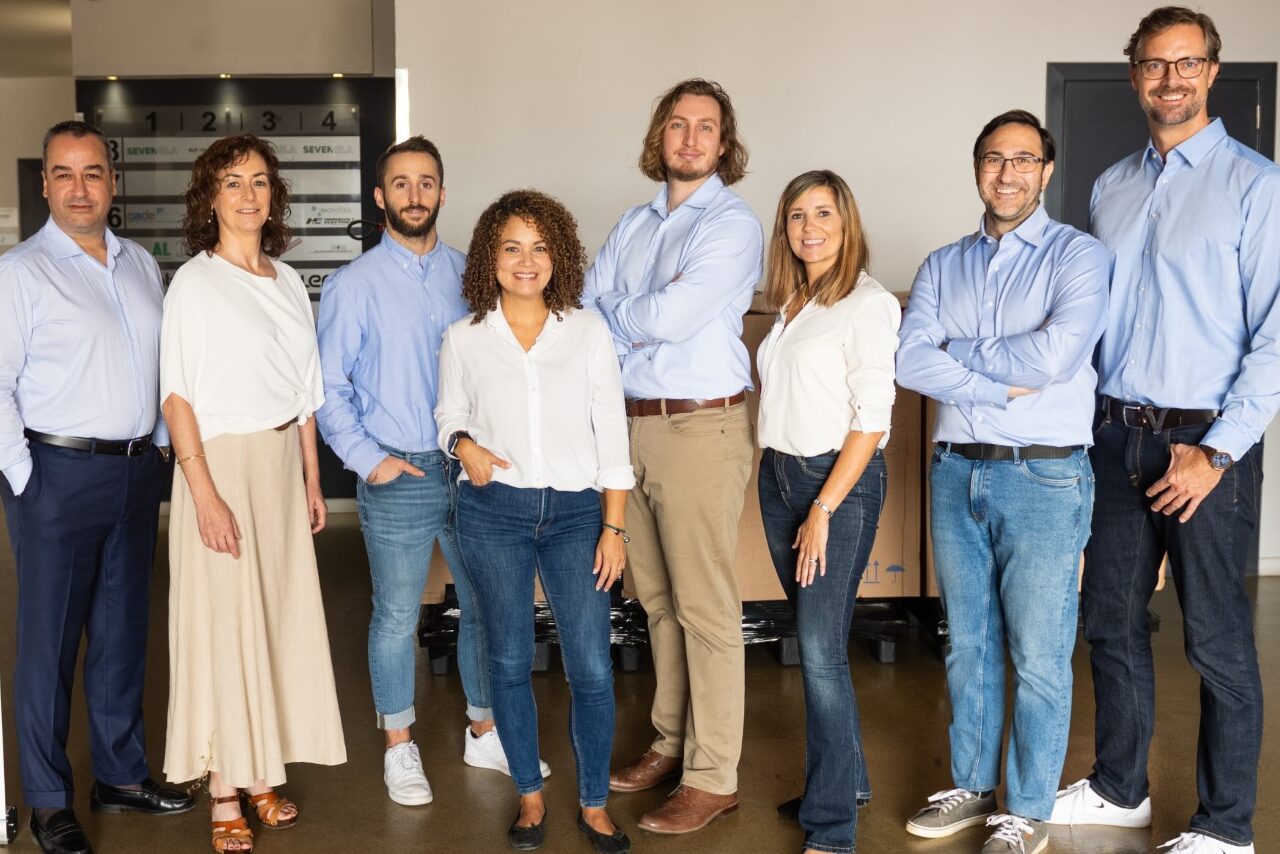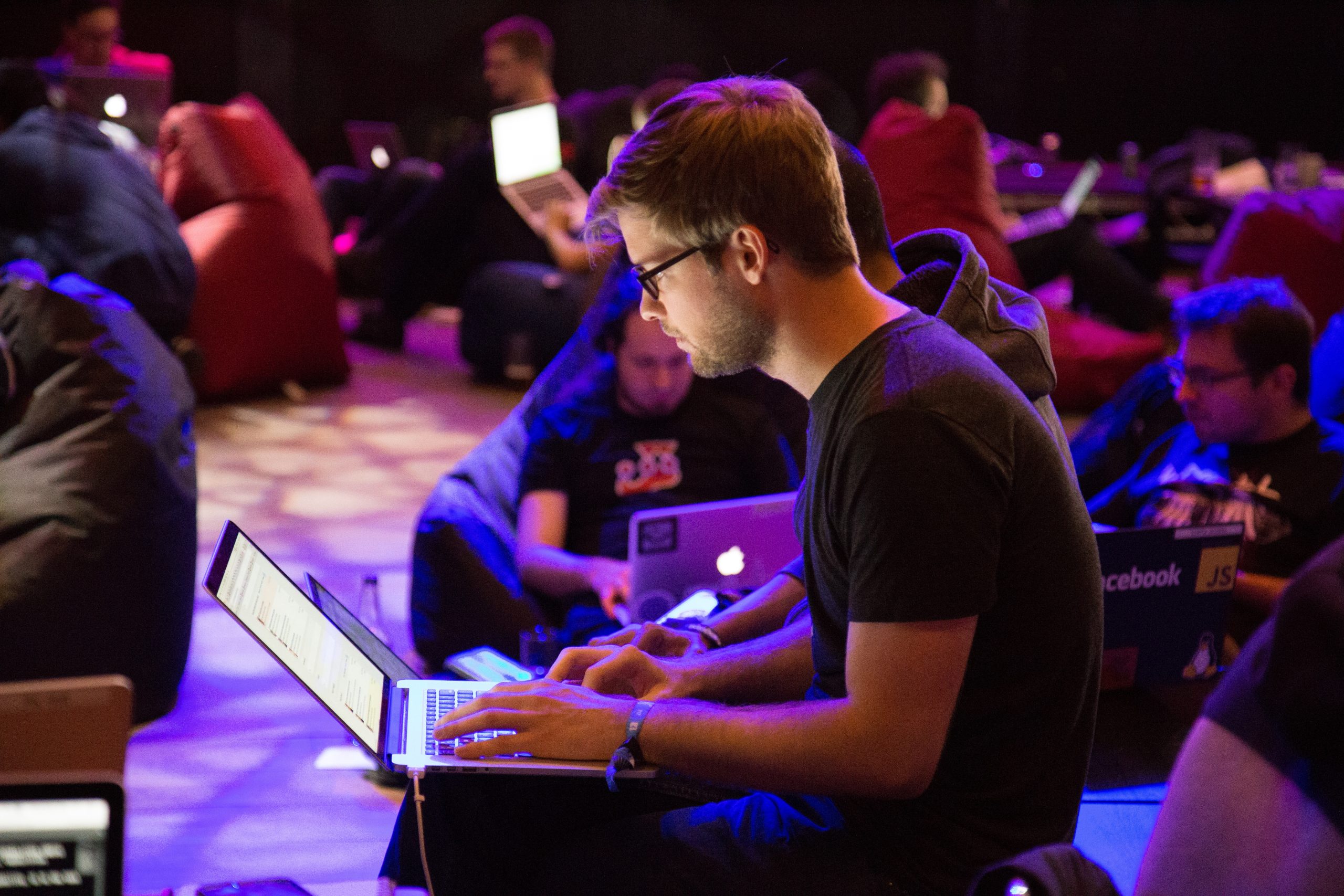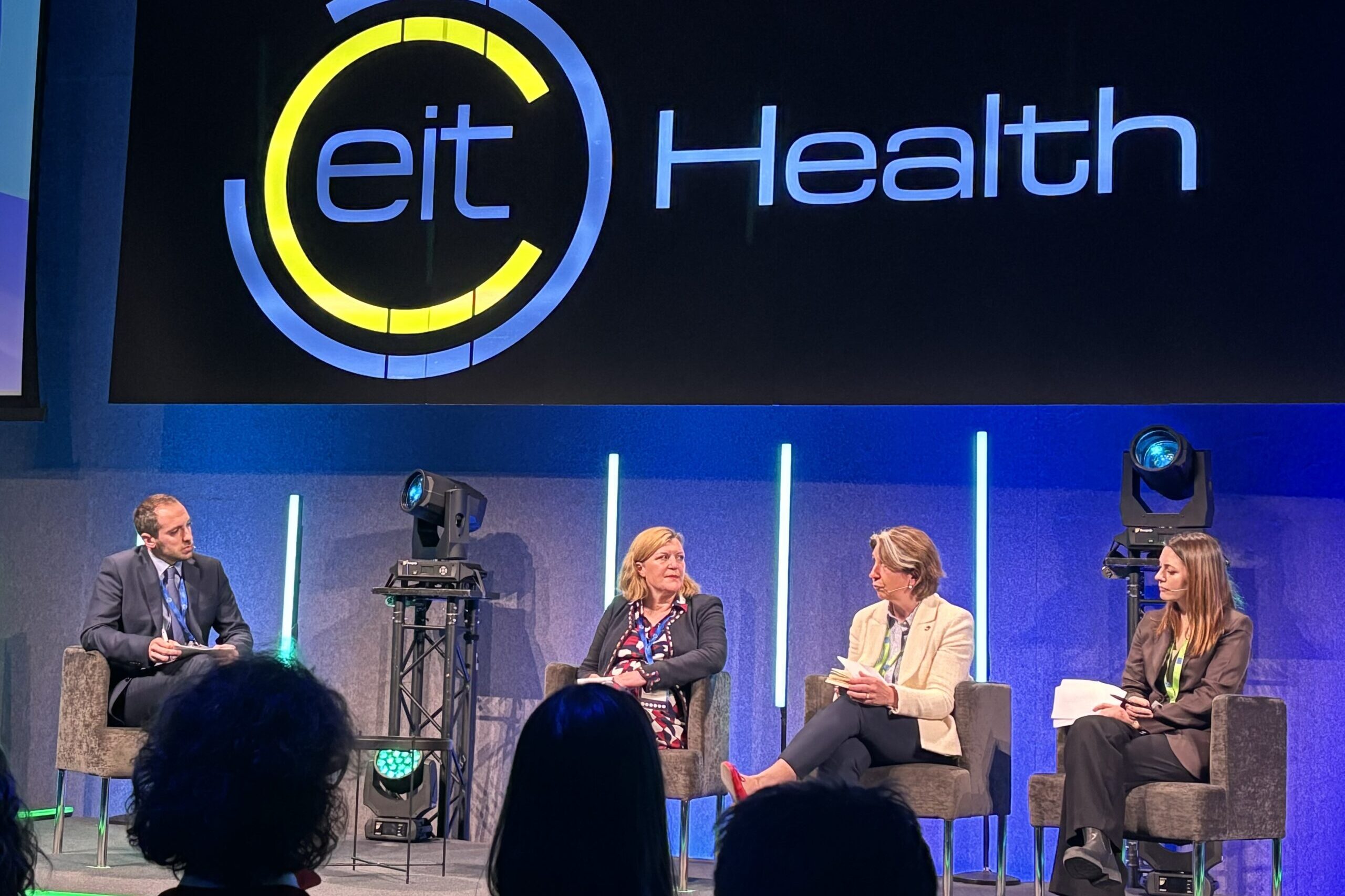13th June 2020
Discover the future game changers in biotech, medtech and digital health
Forty-two start-ups have been pre-selected in Europe-wide competitions for EIT Health Catapult Semi-finals. The start-ups will receive intensive training from experts, meet investors and corporates, and compete in pitch contests for a chance to enter the finals in December.

The EIT Health Catapult, currently in its fifth year of operation, is a training and competition programme that boosts the development of European health start-ups by exposing them to top quality experts and international investors.
The 42 start-ups chosen for the Semi-finals will now enter intense training days, during which they will be teamed up with mentors. The mentors review and potentially optimise the company business plan, and provide thorough pitch training, in order to improve the start-up’s ability to perform a funding roadshow in front of top-level seed or A-series investors.
After the training, there will be one-day virtual expos, during which semi-finalists will pitch in front of an international, high-profile jury and an audience of experienced corporate representatives, experts and investors. The top companies in the three categories of biotech, medtech and digital health – 21 start-ups in total – will be selected and invited to pitch during the finals in December. The seven finalists of each category have the chance to win prize money: First prize is €40,000; Second prize is €20,000; and Third Prize is €10,000. All participating start-ups win valuable recognition, during both the Semi-finals and the Finals.
Dr. Kurt Höller, Director of Business Creation at EIT Health, said: “We are seeing the current challenges in pandemic times as an opportunity to explore new formats, also with our EIT Health Catapult programme. For several years, our physical live pitches always have been a great opportunity to foster personal interaction between European investors and a selection of the best European startups. Now facing fully virtual Semi-finals in October this year, we are inviting investors and corporates from all over the globe to meet with and see the pitches of all those top notch European health startups that have won this year’s regional pre-selections!”
Watch the Semi-finals online
The EIT Health Catapult is inviting investors and experts to attend the virtual Semi-finals, from 21-23 October 2020, for the pitches and for matchmaking. These events provide the opportunity to make early contacts with the healthcare leaders of tomorrow.
Dates for the public pitch and matchmaking days of the semi-finals are:
- Biotech: 21 October 2020
- Medtech: 22 October 2020
- Digital Health: 23 October 2020
Find out more and register for the virtual Semi-final events here.
The 42 semi-finalists:
Biotech
Abarceo (Sweden) develops the first curative therapy for persons with type 2 diabetes. Through a temporary pharmacological inhibition of VDAC-1 (voltage-dependent anion channel 1) protein, the company sustainably recovers the patient’s capacity for insulin secretion, thereby relieving them from the lifelong fight against disease aggravation.
Gelmetix (UK) designs bio-inductive gels that modify cell behaviour, to treat patients suffering from chronic lower back pain and osteoarthritis. The company’s DXM gel, is an injectable gel that is used to treat degenerative disc disease, the cause of 40% of all chronic lower back pain cases. It restores cell function, relieves pain and prevents further degeneration of the intervertebral disc. The company has approval to start the first-in-human clinical trials in Bordeaux this year.
HiQ-Nano (Italy) develops innovative ideas and out-of-the-box approaches in the field of point-of-care diagnostics, home testing, and colorimetric assays. Following an extensive R&D process, the company is launching iBlue, a new test kit for a healthy lifestyle.
LenioBio GmbH (Germany) specialises in protein expression solutions. The company’s first product, the cell-free protein expression kit ALiCE®, enables customers, such as producers of medicine or food, to drastically reduce the development costs of protein-based products and to extract difficult-to-produce proteins.
Medetia (France) aims to provide therapeutics for severe nephrological and ophthalmologic ciliopathy diseases. Medetia combines a premium location in a leading hospital with a unique R&D drug screening platform. Medetia has acquired an exclusive license to use new therapeutics for nephronophthisis and is targeting a clinical trial in the first quarter of 2023.
MediSieve Limited: Magnetic Blood Filtration (UK) develops a platform technology to revolutionise the treatment of blood-borne diseases, such as COVID-19, sepsis and leukaemia, through the removal of specific harmful substances directly from the bloodstream.
Neobiomics (Sweden) provides ProPrems®, an evidence-based probiotics product for preterm infants that safely supports the development of the intestinal microbiota, thereby drastically reducing the risk of the life-threatening disease of necrotizing enterocolitis.
Omnigen (Netherlands) specialises in the analysis of biological data by applying key technologies such as bioinformatics, big data-analysis and scalable cloud computing. This enables Omnigen to develop novel solutions in areas such as companion diagnostics for pancreatic cancer treatment advice, to improve patient outcome and reduce treatment costs.
PanaceAR (Netherlands) develops a unique solution for targeting and imaging necrotic tissue at a very early stage in burns, based on a completely new class of near infrared fluorescent cyanine dye called Azacyanine dye (AZA).
PhagoMed Biopharma (Austria) focuses on the development of human therapeutic applications of phages and phage-derived proteins, which show promise in addressing antimicrobial resistance. PhagoMed currently has three active development programmes in the fields of implant-associated infections, urinary tract infections and bacterial vaginosis.
RAID-CRC (Spain) provides a pioneering non-invasive means to screen for colon cancer. The solution is a fast, easy to use and economical test to pre-diagnose colon cancer and determine the risk in previous stages.
Seekyo (France) develops the next generation of chemotherapies. Their solution is designed to target the microenvironment of solid tumours while sparing healthy tissues. It is intended to provide efficient treatments without adverse effects, thereby improving quality of life for cancer patients.
Senolytic Therapeutics (Spain) develops a solution to prevent tumour relapse based on a novel immunotherapy against senescent cancer cells, which are damaged cells that accumulate in tissues and contribute to disease development.
UVera (Poland) fuses innovation and an interdisciplinary approach to provide skin protection against a spectrum of UV sun radiation. The eco-friendly product is natural and produced by specific species of bacteria, and it is intended to provide a safe and stable skin protector with no negative environmental impact.
Digital Health
Brainscan (Poland) uses artificial intelligence to improve the efficiency of interpretations of brain computed tomography (CT) scans by integrating tools for classifying, localising and comparing brain pathology changes in the radiological workflow.
CardiLink (Germany) makes sure that automated external defibrillators (AEDs) work when needed, via an intelligent connectivity solution. As a next step, CardiLink is creating a vendor-neutral connected ecosystem for health and safety devices.
Healthy Mind (France) combines neuroscience, psychology and virtual reality to alleviate the pain and anxiety of hospitalised patients. Using virtual reality glasses and audio headsets, patients are transported into purpose-designed 3D experiences, to journey through the natural and therapeutic environment of their choosing.
Imageens (France) enables precision medicine in vascular diseases. Their innovation applies AI and biomechanical modelling to cardiovascular MRI data, to inform treatment decisions in vascular diseases. The award-winning platform has been tested in more than 4,000 patients, enabled more than 80 publications, and has been used in 22 leading clinical centres worldwide.
Living Brain (Germany) replaces conventional paper-based cognitive rehabilitation therapy in neurological conditions. The solution includes a treatment tool consisting of a software that uses virtual reality and daily activities to treat cognitive problems in a psychologically validated, sustainable way, combined with a monitoring software for including the therapist in charge.
Methinks (Spain) develops an AI software that serves as a universal digital assistant to triage stroke from non-contrast computed tomography (CT) and unlock stroke-treatment potential.
miiCARE (UK): miiCUBE monitors the activities of the elderly in their home to keep them healthier, happier, and more connected. This includes monitoring of movement and vital signs, such as temperature and oxygen saturation. The solution builds a behavioural model to provide insight into activities, and raises alerts if it detects risks or changes in behaviour. A mobile and web app provides family and carers with up-to-date information.
PatchAi (Italy) aims to transform clinical research with an emphatic virtual assistant to engage patients involved in clinical trials and keep them informed and supported. By focusing on the patient, the company seeks to develop digital health solutions dedicated to safer, faster and affordable medical product development.
Popit (Finland) provides a unique and simple solution to improve patient communication and medication adherence with support that surpasses a simple pill-reminder app. The innovation addresses the challenge of patients not taking their medication properly – a problem that costs money for pharma and healthcare payers and negatively impacts patients’ health. Popit’s first customers include the world’s No. 1 and No. 2 pharmaceutical companies.
Sani nudge (Denmark) offers an easy to implement IoT platform to improve processes in healthcare facilities by using location data on staff, patients and assets. The system consists of an easy to implement sensor network that helps to monitor hand sanitation, assets and workflows. The system can be scaled from a single department to multiple healthcare facilities.
Sensinxs (Belgium) helps healthcare professionals to localise equipment, patients and staff – in real-time with their “Smart Healthcare Platform”. The platform also includes advanced new tools for the better monitoring of patient vital signs. The results are significant cost savings, improved efficiency, and higher patient satisfaction.
Smart Soft (Netherlands) envisions being at the forefront of AI image processing and analysis, using computer algorithms to boost efficiency. Since 2016, Smart Soft is developing CoLumbo, a cutting-edge software solution offering an automated processing and analysis of spine MRI and computed tomography (CT) studies – an unmet need on the market today.
SpotLab (Spain) develops a digital ecosystem for decentralised analysis of medical microscope images that brings together low-cost hardware devices and advanced software components for automated diagnosis.
Vitrue Health (UK) works to change the way musculoskeletal conditions are assessed and treated. Physiotherapy is one of the last areas of medicine where clinicians must rely on their sight alone to diagnose patients. Vitrue Health’s computer vision and biomechanics-based technology is changing that with quantitative and beautiful assessment reports that improve outcomes and please patients.
Medtech
AgenT (France) develops the first blood diagnosis to detect Alzheimer’s up to 20 years before the onset of irreversible symptoms. The only company supported by France Alzheimer, AgenT has combined 10 years of academic research, neuroscience and artificial intelligence to develop a neural network based on 25 biomarkers specific to Alzheimer’s.
Amparo (Germany) redefines prosthetic socket technology. The Confidence Socket is an innovative off-the-shelf, mobile and remouldable product, created to provide a simpler, faster and more economic fitting process for amputees.
Aortyx (Spain) aims at providing a new generation of endovascular devices to treat vascular diseases. They are developing an endovascular bioresorbable adhesive patch that mimics the aortic tissue and restores its biomechanical environment, for treatment of aortic dissections.
Chundsell Medicals (Sweden): develops the prognostic gene test Prostatype, which will improve quality of life for prostate cancer patients and cut costs for the healthcare system. Prostate cancer is one of the most common forms of cancer in the world, and this solution provides decision support for patients and doctors, reducing the risk of over- or undertreatment and postponing repeated biopsies.
Confocal.nl (Netherlands) provides upgrade solutions to turn any microscope into a 3D confocal microscope with extreme sensitivity and super resolution. Confocal.nl microscope systems are available for the visible, and also near-infrared, imaging spectrum.
CRIAM (Portugal) focuses on point-of-care blood diagnosis. Their mission is to provide fast, affordable, in-situ blood test analysis. CRIAM’s device-as-a-platform approach increases medical efficiency of analysis and can save lives by saving time.
GRADIENT (France) develops a unique therapeutic technology to treat pulmonary hypertension, a fatal condition that effects approximately 500,000 patients per year worldwide. This disruptive therapy results in a reduction in pulmonary vascular resistance and has shown breakthrough potential as a life-saving treatment.
Neos New Born Solutions (Spain): develops NEOSONICS, a quick, easy, painless and cost-effective detection and monitoring system for infant meningitis.
OnDosis (Sweden) develops a new way for patients to take oral medicines. The OnDosis solution consists of a handheld device, integrating medicine with intelligent dosing. The platform connects dosing data to a patient app and physician dashboard, enabling truly individualised and connected treatments for patients.
PerAGraft (Germany) dedicates its efforts to developing patient individualised implants for cardiovascular applications and bringing them into the clinical routine. Their innovation is designed to create a new era in complex aortic aneurysm treatment by providing tailored solutions for each patient.
RTsafe (Greece) provides PseudoPatient for personalised pre-treatment verification of the radiotherapy regimen for patients with brain cancer and other demanding cranial lesions. Their patented solution incorporates a 3D printed, exact replica of the patient’s head, which can be “treated” prior to the real patient, offering true verification of the radiotherapy treatment application.
Sentinel Biosensor (UK) creates state-of-the-art, wearable, vital sign monitors that record data with medical grade accuracy while still being consumer-friendly, for use in hospitals and post-discharge in patients’ homes. Sentinel records pulse, respiration-rate, temperature, three-axis position, motion, stress, sleep quality, galvanic skin response and indoor GPS. It also provides cuffless blood pressure estimation and works off-grid. No connection or infrastructure is needed, either in the hospital ward or the patient’s home.
STIL (Netherlands) develops a brace to be worn by people with Parkinson’s, as a way to help stabilise their hands. More than 22 million people worldwide suffer from involuntary shaking hands, caused by Parkinson’s disease and essential tremor. STIL helps these people with a hand brace based on the concept of the technology used in noise cancelation.
Zoan BioMed (Ireland) designs and develops orthopaedic devices through the sustainable cultivation of tropical marine coral, delivering disease-free, natural, safe, and effective bone graft solutions for surgeons. An ageing population is the prime market driver for sector growth, and Zoan caters to this market through an innovation pipeline addressing the most pressing clinical needs in bone repair.
MOWOOT secures over €2M from Next Generation funds

Learn how EIT Health accelerated their journey.
Join the heartbeat of healthtech in Munich this June

Discover the third annual health.tech conference.
Health experts make recommendations on EHDS implementation

Discover our new Think Tank report.